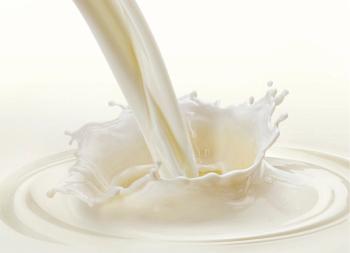
- Nutritional Outlook Vol. 20 No. 7
- Volume 20
- Issue 7
Cocoa Flavanols: Choc’ Full of Health
Manufacturers have laid the groundwork to succeed in the fast-growing high-flavanol cocoa category, but there is work still to be done to show consumers that high-flavanol products are more than just desserts.
Ever since research first suggested the potential brain- and heart-health benefits of cocoa flavanols, chocolate manufacturers have been on the lookout for ways to create innovative, high-flavanol chocolate products that satisfy consumers’ desire for indulgence while providing all the health benefits cocoa flavanols offer. But even after a product undergoes the notoriously delicate production process that ensures products retain their high flavanol content, it can then be just as tricky to find ways to spread the word to consumers about why high-flavanol products are worth trying.
According to Debra Music, Chief Marketing Officer, Theo Chocolate, it looks as though the tide of awareness may soon be turning. Music points to recent Euromonitor data indicating that by 2021, the healthy-chocolate confectionery category is on track to grow by almost double the rate in retail value and volume consumption as the regular chocolate category. These projections are undoubtedly encouraging to those in the cocoa flavanol category, but making those figures reality is another matter. To that end, companies like Theo Chocolate and ingredient suppliers Barry Callebaut (Zurich, Switzerland) and Naturex (Avignon, France) are making strides with new product offerings and smart marketing.
No stranger to the functional-chocolate category, Theo first launched its Quinoa Coconut 75% Dark Super Chocolate bars, containing 150 mg of flavanols per serving, in 2015. Last September, it launched Chocolate Clusters, which it calls its “first broad offering featuring a high-flavanol cocoa extract as an ingredient.” Each serving of the Chocolate Clusters contains a minimum of 50 mg of cocoa flavanols.
Music says that one of Theo’s goals is helping consumers better understand what cocoa flavanols are and what they can do. “While dark chocolate is known to provide health benefits, not many people are informed that the reason for these benefits are cocoa flavanols,” she says.
Chocolate manufacturers may get a little help on this front from a European Food Safety Authority (EFSA)
Cocoa producer Barry Callebaut was initially granted the EFSA health claim in 2013 for its high-flavanol Acticoa cocoa powder and chocolate. In 2014, EFSA extended that health claim to cover cocoa extracts for supplements. Laura Bergan, director of innovation and market development, and Michael Augustine, U.S. director of R&D and innovation, Barry Callebaut, tell Nutritional Outlook that Acticoa was the first chocolate and cocoa powder to benefit from an EFSA health claim, which they say has brought more credibility and assurance to their product globally.
Now, that health claim is yielding innovation in the dietary supplements category, too. Barry Callebaut and Naturex are two years in to a
Bergan and Augustine say that the fact that consumers are becoming increasingly educated about what they eat generally is a good sign. “They are more cautious and observant of the types of foods they are consuming and…are willing to pay a little more for a product that does provide them health benefits.” But consumers still seek indulgence, too. With high-flavanol cocoa on the rise, they can have their chocolate and eat it, too.
Also read:
Articles in this issue
almost 8 years ago
8 Drivers of the Mushroom Ingredient Marketover 8 years ago
Green Coffee Supplementation and Metabolic Healthover 8 years ago
Childrens’ Probiotics: To Immunity and Beyondover 8 years ago
Calcium: Strong Bones, Weak Heart?over 8 years ago
What Will It Take to Expand Probiotics’ Customer Base?over 8 years ago
Probiotic Product Trends: From Yogurt to KefirNewsletter
From ingredient science to consumer trends, get the intel you need to stay competitive in the nutrition space—subscribe now to Nutritional Outlook.


